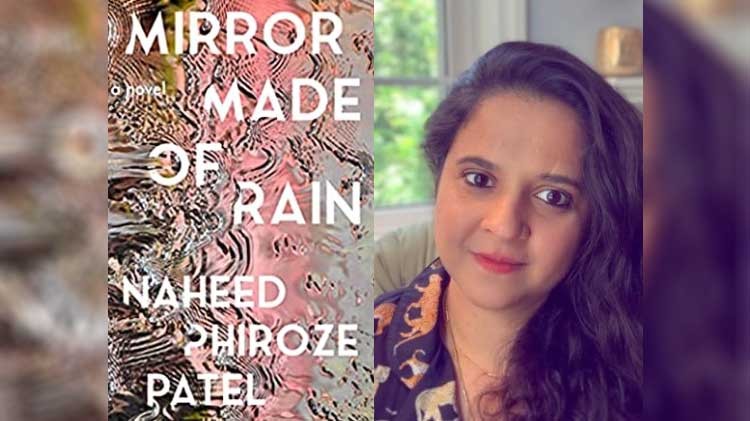Writing Women’s Stories
How has fiction offered meaning for the trauma and injustice suffered by women? “I look at reality like broken pieces of a jigsaw puzzle and fiction is kind of how I figure out how those pieces fit together,” explained writer Naheed Phiroze Patel on March 3, 2022 in a virtual program organized by Columbia Global Centers | Mumbai. The program marked Women’s History Month of 2022 and was part of the Center’s Writing Indian Stories series that features works of writers from the Columbia University community.
Ms. Patel, an alumna of Columbia University’s School of the Arts and author of the recently published novel ‘A Mirror Made of Rain’, was joined in conversation with the Center’s Director, Dr. Ravina Aggarwal. The novel offers a feminist perspective in its portrayal of a young woman’s journey towards healing and self-acceptance as she navigates deep-seated patriarchy, noted Dr. Aggarwal. It addresses the perpetuation of inequality through societal practices, familial relations, and wealth distribution that demand conformity and submission in women and circumscribe gender roles. The conversation also focused on the characters finding agency through everyday acts of resistance, even if it makes them disagreeable to society and unlikable to some readers.
But challenging injustices also comes at a cost, taking a toll on women’s relations and mental health. This is a prominent theme of the novel, and is highlighted through the issue of alcoholism, self destructive behavior, and the protagonist’s complex relationship with her mother. Although now slowly becoming more accessible in some quarters, Ms. Patel commented on how the lack of professional and community support for women’s mental health has left unattended the wounds that fester within women and seep into the lives of their children, continuing generational cycles of violence and misogyny.
Sharing her writing process, Ms. Patel explained how her novel had evolved to add more context and layers to the world and characters created through feedback and rewriting drafts, a process that had started at her time at Columbia. She shared her gratitude towards the community of writers that had helped in the process, and editors and publishers that had made the publishing of this debut novel possible in the midst of a global pandemic, also extending her thanks to reviewers and readers. As advice to students and aspiring writers, Ms. Patel encouraged them to keep writing more, sending out works irrespective of setbacks, and to build a community of writers that could help uplift each other’s voices. In the backdrop of the pandemic and its many losses, Ms. Patel reflected that even though her novel dealt with difficult themes, she hoped that it would be able to help forward conversations about women’s mental health and evoke a sense of resonance and solidarity among readers.
